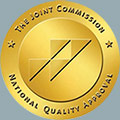Though an individual can, in theory attempt to detox from alcohol at home, it is not recommended.
The feelings elicited when an individual ingests alcohol occur because of the way the substance interacts with one’s neurotransmitters. According to the National Institute on Alcohol Abuse and Alcoholism (NIH), “alcohol interferes with the brain’s communication pathways, and can affect the way the brain looks and works.” It is a central nervous system depressant that works by slowing down vital functions in one’s body.
Alcohol stimulates GABA receptors in the brain. These receptors have many effects, but they play an important role in reducing anxiety and slowing bodily systems. When someone uses alcohol over a prolonged period, the brain adjusts by reducing the number and sensitivity of GABA receptors. When the body lacks alcohol, there are not enough GABA receptors for the brain to function normally in its absence, and withdrawal symptoms will ensue. Withdrawal symptoms will last until the brain can readjust to the absence of alcohol, and as is asserted by the Substance Abuse and Mental Health Services Administration (SAMHSA) alcohol withdrawal symptoms and duration of detox is highly variable. Withdrawal symptoms that can occur from removing alcohol from one’s system can be excruciating and, in some cases, dangerous.
Why Not To Detox From Alcohol At Home
The at home detox method is when an individual attempts to undergo detox at home without any medical supervision. There is a myriad of risks associated with detoxing from alcohol at home. Some examples of risks as well as withdrawal symptoms that may occur during an at-home detox from alcohol could include but are not limited to the following, provided by Verywell Mind:
- High blood pressure
- Panic attacks
- Nausea
- Vomiting
- Fever
- Headaches
- Increased heart rate
- Constipation
- Diarrhea
- Seizures
- Muscle pain
Attempting to detox from alcohol alone can be unsafe as it is impossible to determine how severe one’s withdrawal symptoms will be until he or she is in the process of detoxing. The most dangerous withdrawal symptom associated with detoxing from alcohol is called delirium tremens. Delirium tremens is scientifically defined as “the most severe form of ethanol withdrawal, manifested by altered mental status (global confusion) and sympathetic overdrive (autonomic hyperactivity), which can progress to cardiovascular collapse.” Delirium tremens is a medical emergency, and when not medically tended to can become fatal.
For Information and Support
Contemplating detox can be a very challenging time. Before any individual can begin to work on the underlying issues contributing to their substance abuse problem, they must be separated from the substances in their systems. If you are concerned for yourself or a loved one regarding substance abuse, and/ or addiction we recommend reaching out for help as soon as possible. The earlier you seek support, the sooner you and your loved ones can return to leading happy, healthy, and fulfilling lives. Sherwood Detox offers a stand-alone detox program. For additional information on detox, please do not hesitate to contact us at: 818-626-9959 or feel free to email us anytime. One of our trusted counselors is available to talk and discuss how we can best support you on your journey.









